Resources Library

Supporting you also means helping you gain a clearer understanding
Clients
Resources
- General information on neurocognitive disorders
- Document
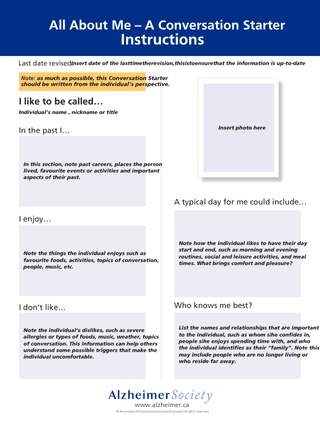
Instructions booklet – About me
Learn more about how to use the About Me booklet and create a summary sheet for it using the instruction booklet.
- General information on neurocognitive disorders
- Document
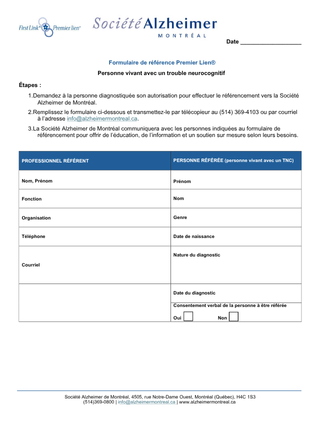
First links form
First Link referral form – For healthcare professionals to refer a person living with a neurocognitive disorder to the Alzheimer Society of Montreal.
- General information on neurocognitive disorders
- Document
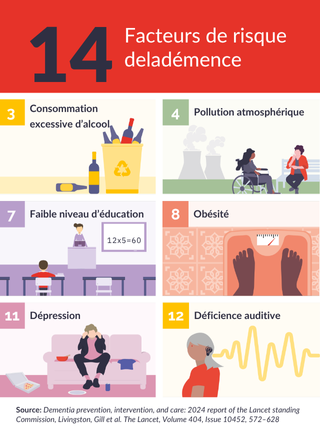
14 Risk Factors
IMAGE FR
Use this tool created by Alzheimer’s Disease International to identify risk factors that may be associated with the development of neurocognitive disorders.
- General information on neurocognitive disorders
- Document
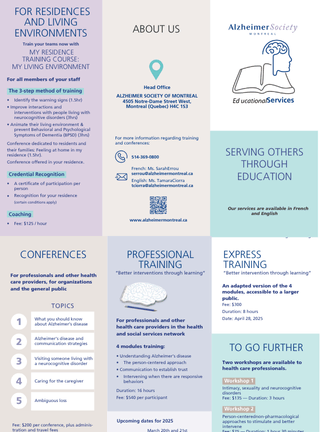
Educational Service’s brochure
Discover the full range of services offered by the Educational Services Department of the Alzheimer Society of Montreal.
- Living with the disease
- Document
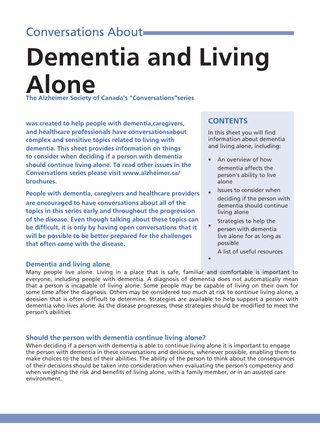
Living alone with a neurocognitive disease
This fact sheet provides information on the various factors to consider when deciding whether a person diagnosed with cognitive impairment should continue to live alone in the community.
- Living with the disease
- Document
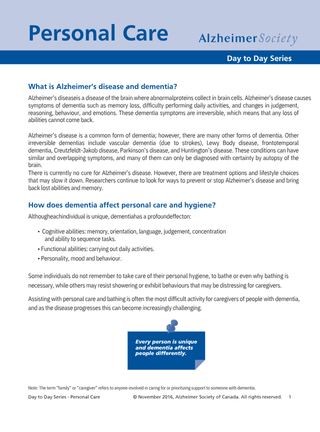
Personal hygiene care
Learn more about how Alzheimer’s disease and related disorders can affect personal hygiene care. Discover tips and tricks to encourage personal hygiene in people living with neurocognitive disorders.
- Living with the disease
- Document
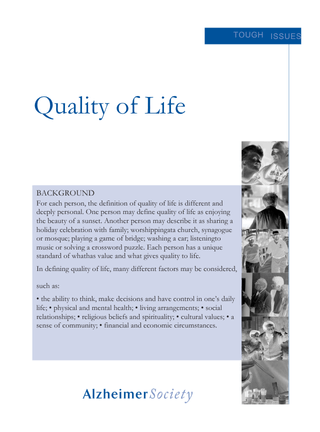
Quality of life
Discover how to improve the quality of life of people living with neurocognitive disorders, using a person-centred approach.
- Living with the disease
- Document
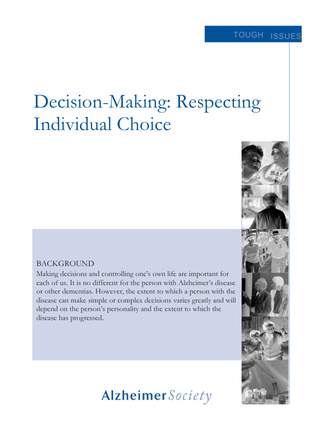
Decision-making : respecting individual choice
Learn more about the ability of people living with neurocognitive disorders to make decisions that impact their quality of life throughout the progression of the disease.
- Living with the disease
- Document

First Steps in the Comprehension of NCDs
You are probably feeling worried and anxious about the changes you are experiencing. Now that you know they are caused by a neurocognitive disorder, you may be concerned about your future. Please know that by obtaining a diagnosis, you have taken an important first step.
- Living with the disease
- Document
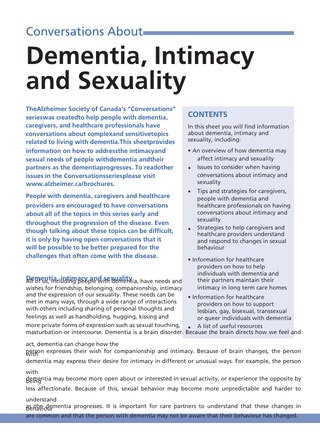
Intimacy and sexuality in the context of neurocognitive disease
Intimacy and sexuality in the context of neurocognitive disease